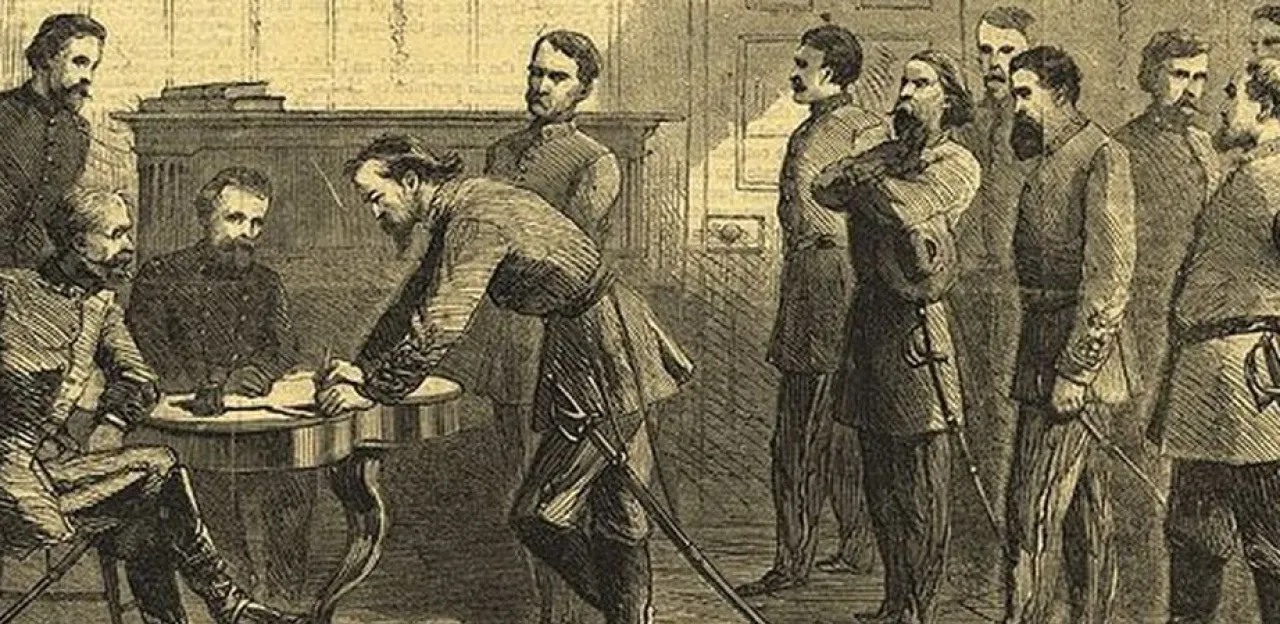Major General Sherman’s “Memorandum or Basis of Agreement,” April 18, 1865

Memorandum or basis of agreement made this 18th day of April, A.D. 1865, near Durham’s Station, in the State of North Carolina, by and between General Joseph E. Johnston, commanding the Confederate army, and Maj. Gen. William T. Sherman, commanding of the army of the United States in North Carolina, both present.
First. The contending armies now in the field to maintain the status quo until notice is given by the commanding general of any one to its opponent, and reasonable time, say forty-eight hours, allowed.
Second. The Confederate armies now in existence to be disbanded and conducted to their several state capitals, there to deposit their arms and public property in the State arsenal, and each officer and man to execute and file an agreement to cease acts of war ad to abide the action of both State and Federal authority. The number of arms and munitions of war to be reported to the Chief of Ordinance at Washington City, subject to the future action of the Congress of the United States, and in the meantime to be solely to maintain peace and order within the borders of the States, respectively.
Third. The recognition by the Executive of the United States of the several state governments on their officers and legislatures taking the oaths prescribed by the Constitution of the United States, and where conflicting State governments have resulted from the war the legitimacy of shall be submitted to the Supreme Court of the United States.
Fourth. The re-establishment of all Federal courts in the several States, with powers as defined by the Constitution and laws of Congress.
Fifth. The people and inhabitants of all States to be guaranteed, so far as the Executive can, their political rights and franchises, as well as their rights of person and property, as defined by the Constitution of the United States and of the States respectively.
Sixth. The Executive authority of the Government of the United States not to disturb any of the people by reason of the late war so long as they live in peace and quiet, abstain from acts of armed hostility, and obey the laws in existence at the place of their residence.
Seventh. In general terms, the war to cease, a general amnesty, for far as the Executive of the United States can command, on condition of the disbandment of the Confederate armies, the distribution of arms, and the resumption of peaceful pursuits by the officers and men hitherto composing said armies.
Not being fully empowered by our respective principles to fulfill these terms, we individually and officially pledge ourselves to promptly obtain the necessary authority and to carry out the above program.
W.T. Sherman,
Major-General, Comdg. Army United States in North Carolina.
J.E. Johnston,
General, Commanding. C.S. Army in North Carolina.





